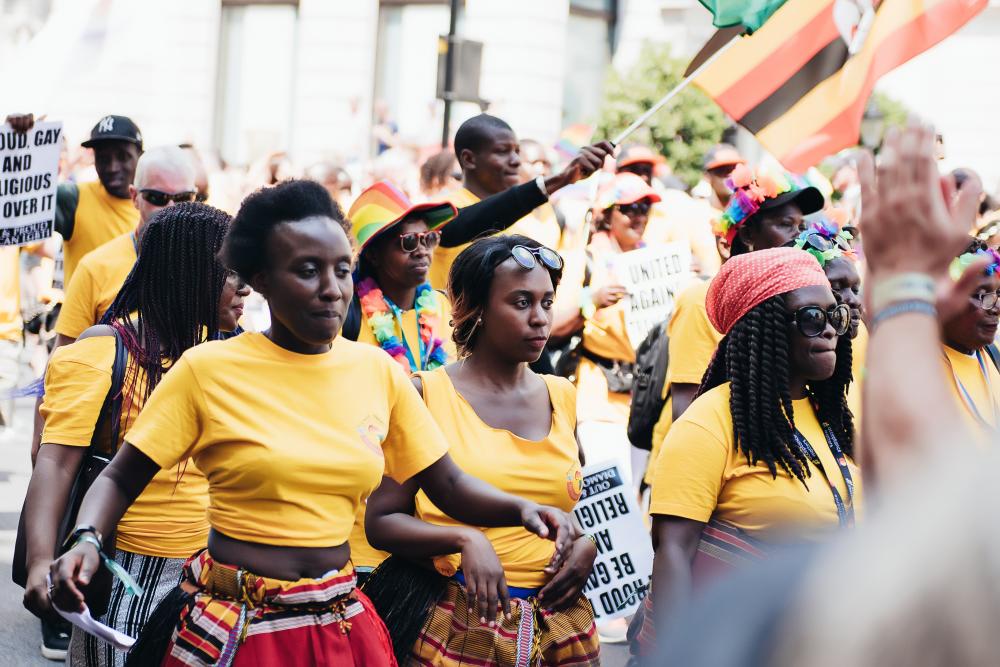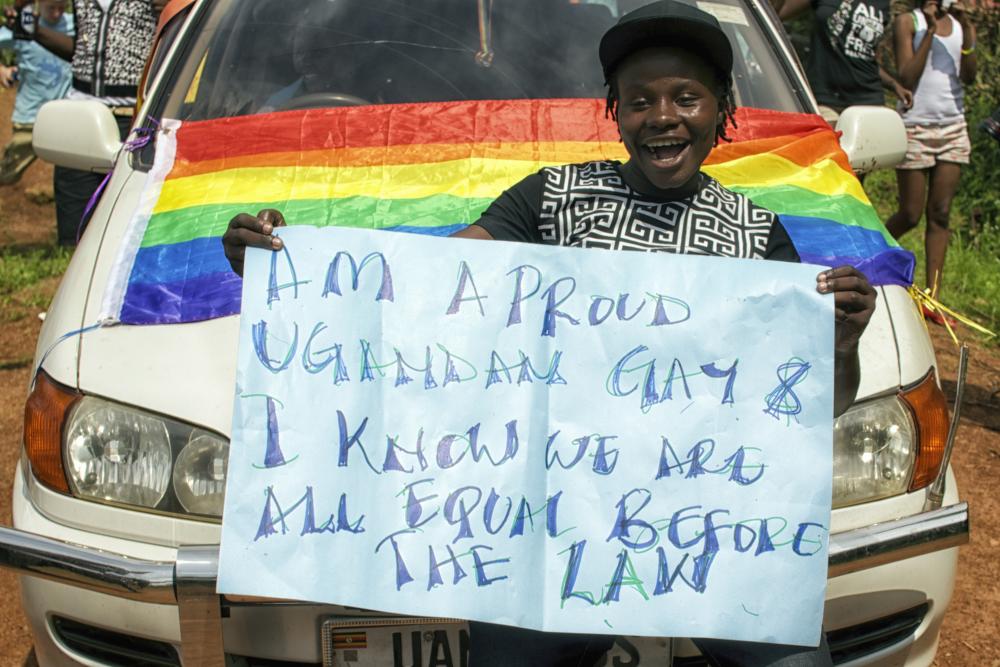Uganda's anti-homosexuality law and the urgent need for radical feminist politics


Dr Awino Okech writes about the enactment of anti-homosexuality laws in Uganda, Ghana, and Kenya and argues that it reveals a patriarchal agenda which necessitates a transnational feminist response to counter regressive gender norms and movements.
On 26th May 2023, Ugandan President Yoweri Museveni assented to the anti-homosexuality bill that turns into law a wide-ranging act that, among other things, includes a ten-year jail term for “attempted homosexuality” and a death sentence for “aggravated homosexuality”. The new anti-homosexuality act is an adjusted reprisal of the 2009 Bahati Bill that was thwarted by a technicality – the lack of a quorate parliament.
Re-asserting patriarchal norms under the guise of "African values"
The Ugandan law is reflective of a spate of laws across Africa that are argued to protect the heterosexual African family, “African values”, and a rejection of “Western norms”. Similar laws have been seen in Ghana and Kenya. In July 2021, eight members of the Ghanaian parliament proposed the Promotion of Proper Human Sexual Rights and Ghanaian Family Values Bill 2021. On 7th April 2023, a Kenyan member of parliament declared that he had introduced a Family Protection Bill in parliament, which among other things, prohibits sexual health services and sexual health rights education. By corralling moveable notions of “African culture”, “Christianity”, and “family values”, these bills crack down on basic sexual and reproductive health services and education, including lifesaving HIV/AIDS services. While claiming to target gender and sexually diverse people, they, in effect, mobilise very specific notions of heterosexuality designed to reconstitute a conservative interpretation of gender relations and roles. I argue that these laws are not about protecting the “family” or “African values” but are an implementation of a desire to re-assert patriarchal norms in fast-changing societies where significant shifts in thinking about gender have altered the organisation of the domestic and public sphere.
The transnational financial resources behind anti-LGBTQI legislation
Equally pertinent in the contagion effect of anti-homosexuality laws is their transnational nature, particularly the connection between who funds these projects in Africa, the evolution of adjacent discourses in Europe in particular and the UK specifically and the role of the law as a disciplinary device used to police groups, rewrite gender norms and redefine legible lives. On funding, Provost and Sekyiamah’s 2022 investigative review points to donor-funded churches and associated groups that propelled anti-LGBTQI legislation in Ghana whilst the same development funders concomitantly pledge support for LGBTQI rights through other funding streams and public rhetoric. This contradictory funding pattern is also observed in Uganda with funding for the Inter-Religious Council of Uganda. While it can be argued that funding for these church groups was for support towards activities such as anti-corruption initiatives, the fact that these resources supported institutions that work against core principles that these donors stand for points to the larger question of the politics of donor funding and its role in real transformative social change.
Staying with funding is the role that US evangelical churches have played in both supporting anti-LGBTQI rhetoric through “training” and financial resources. This strategy was evident in American evangelist Scott Lively’s role in the 2009 Bahati Bill and, more recently, the role of groups such as Family Watch International in the anti-homosexuality law Museveni assented to. The convergence between Christian fundamentalist groups, conservative secular actors and political organising remains a critical concern for those of us who remain interested in understanding how various actors mobilise to overturn hard-won freedoms and the reclamation of formal political spaces – parliaments, political parties, and legislation - as the sites for this type of organising. Brazilian scholar Sonia Correa observes the transcontinental nature of what she terms as a hydra with these groups acting and mobilising across Africa, Latin America, Europe and North America. These anti-gender, gender ideology and anti-LGBTQI groups' ability to mobilise vast transnational financial resources illustrates a growing coalition of actors, including far-right parties, faith-based groups, and groups loosely organised around protecting traditional values.
We must centre feminisms that do not enforce gender as binary
The financial support available to and mobilised by these transnational movements feeds the discursive terrain that is animated in the UK through the “*Trans question”. The *Trans conversation in the UK and anti-homosexuality laws across Africa are connected even if galvanised by anti-colonial rhetoric in Africa. As Alyosxa Tudor argues in their reflection on a SOAS Centre for Gender Studies conference, it is essential that we centre feminisms that do not reify gender as binary and binds specific communities to social death.
As a petition is mounted in Uganda’s Constitutional Court to challenge the anti-homosexuality act, it is clear that this moment demands transnational feminist organising that recognises that the threats posed by far-right political parties in Europe are not disconnected from laws that pose serious material threats to comrades across Africa. If we are to wage a collective struggle against organised transnational anti-gender forces, our feminist battle must cut through differences to find political convergence to deliver a powerful intellectual and frontline counterforce to regressive gender discourses and movements.
About the author
Dr Awino Okech is a Reader in Political Sociology in the Department of Politics and International Studies at SOAS and the Director of the Feminist Centre for Racial Justice.




